Child Development: Main Issues
- Early child development is any kind of change in a child that may occur between 2 and 6 years.
- Cognitive development is the development of an ability to think and reason.
- Behavioral development is the development of an ability to interact physically, emotionally, mentally, etc.
Child development touches upon the development of skills of social and emotional functioning, physical well-being, cognitive language, etc. Child development is the process that consists of several periods: prenatal (from concept to birth), infancy (from birth to 2 years), early childhood (from 2 to 6 years), middle childhood (from 6 to 12 years), and adolescence (from 12 to 19 years). This presentation touches upon the changes that take place between 2 and 6 years. Child development of cognition and behavior has its own peculiarities during this period and influences child’s well-being considerably. If something goes wrong, the whole process of child development may be put under a threat. If parents do not pay much attention to a variety of factors influencing early child development, they get fewer chances to succeed in their child reaching his/her full potential.
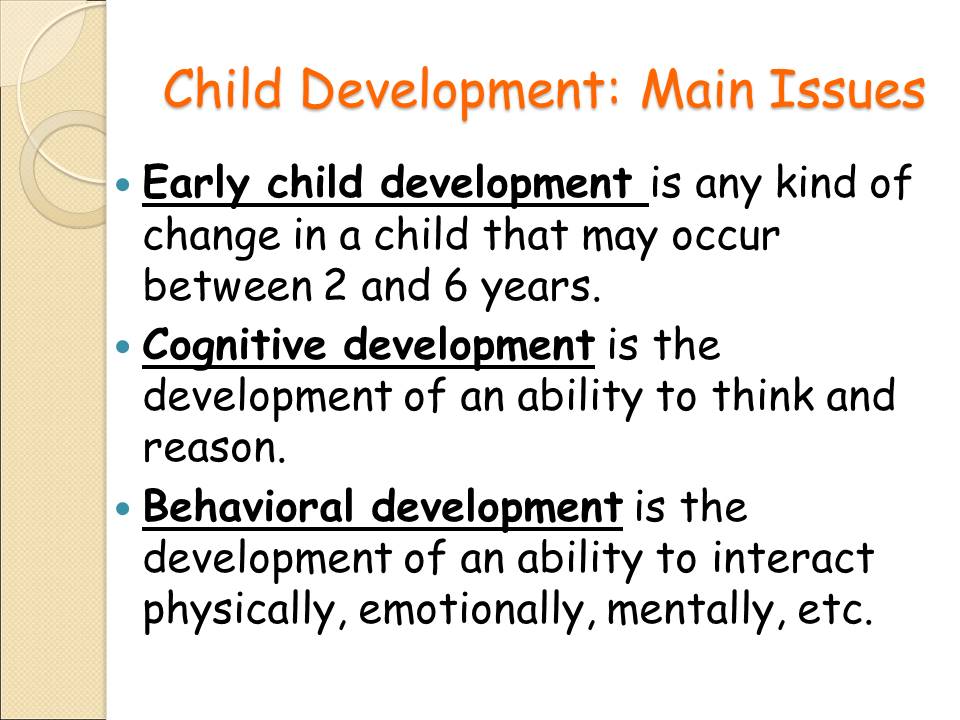
Early Child Development
Social changes
- Understanding of self
- First relations with others
- Attachment
- Expression
- Aggression
Biological changes
- Physical growth
- Brain development
- Language development
Psychological changes
- Desire to know WHY
- Independence
Early child development is an important period that is characterized by a number of changes. Each change should pass accordingly, and parents should be ready to accept new preferences of their children and encourage new achievements. There are many factors that may influence this stage of development, and the understanding of changes is the first step that has to be made by parents. They should know what to expect from their children at this age and be ready to promote changes neglecting or overcoming all possible outside factors.
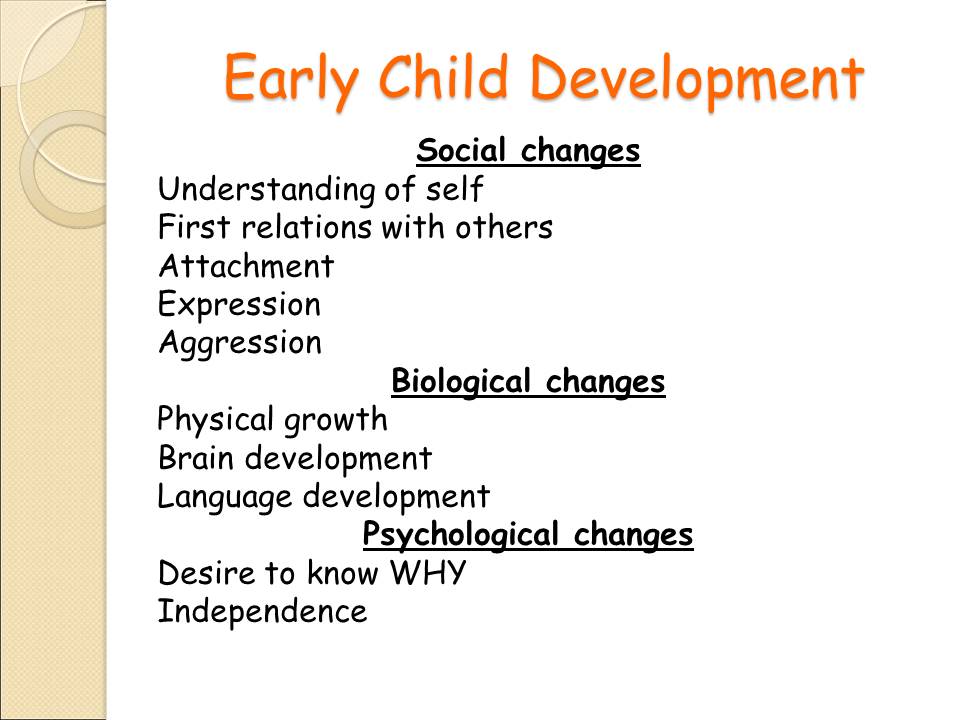
Development of Child Cognition and Behavior
May be influenced by the following factors:
- Poverty
- Culture
- Access
- Linguistics
- Family
The effects of poverty, culture, access, linguistics, and family on early development of cognition and behavior may be both direct and indirect through different processes (Engle & Black, 2008). Each child deserves a chance to develop his/her best skills and blossom in a world, and grown ups have to learn the factors that may influence early child development but remain to be under grown ups’ control.
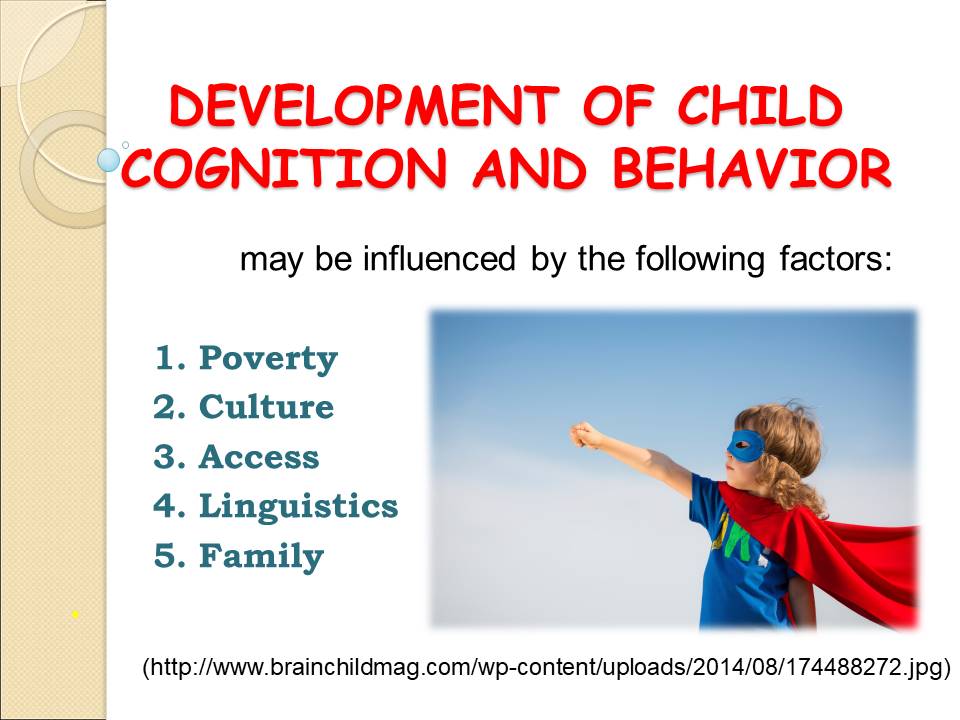
Factors Influencing Development
Poverty
- Engle and Black (2008) indentify poverty as a persistent world problem that has a deleterious effect on all aspects of early child development.
- It is a dynamic process, and each family may suffer from poverty within a short period of time.
- Poverty creates stress for children and their families.
Poverty may influence academic achievements of a child and create a number of social problems within a family. However, it is necessary to admit that people are able to overcome poverty and create appropriate conditions for child development. Much depends on how a family treats poverty and which measures are taken to improve the situation (Engle & Black, 2008). On the one hand, poverty may be accepted as a challenge for education, an inability to have appropriate educating conditions, an impossibility to get enriched. On the other hand, poverty may become a powerful stimulus to change something in life, to achieve some improvements, to prove personal worth.
Effects of poverty on child development:
- Direct (risk factors are increased, protective factors are limited)
- Moderated (families’ inabilities to protect children)
- Medicated (parents are not able to meet emotional and cognitive needs of their children)
- Transactional (quality of parent-child interactions gets worsen)
The ways of how poverty may affect early development of cognition and behavior may be of different types: direct (children from low-income families may suffer from obesity or undernutrition and omit their breakfasts that may influence brain work considerably (Benton, 2008)); moderate (social selection proves that parents who consider honesty and integrity are able to protect their children against poverty) , mediate (disruptions in family functioning takes place and child development is characterized by numerous stresses and problems with mental health), and transactional (absence of sensitive caregiving influences child behavior and makes them more rude and impolite with other children).
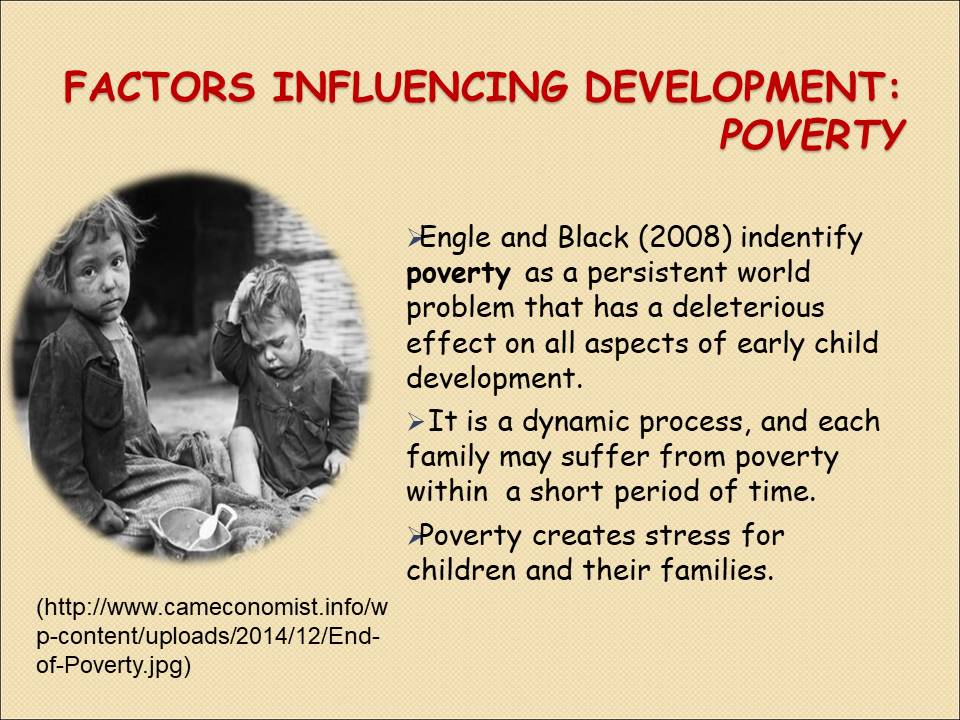
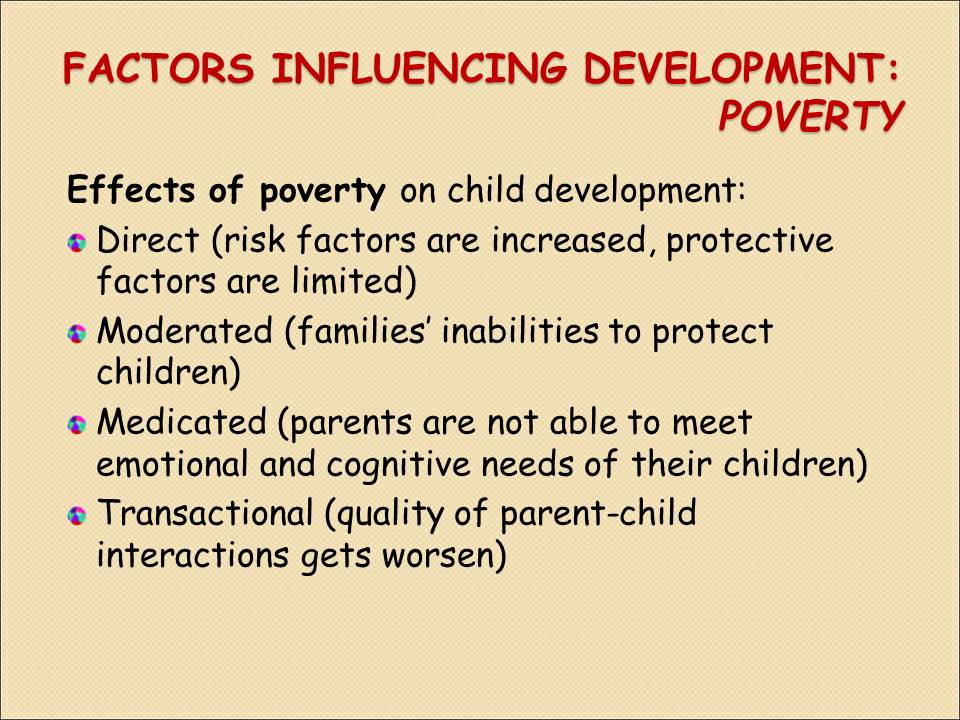
Culture
- Cultural impact on child is observed before birth
- Mother’s food is culturally predetermined
- Baby’s delivery depends on cultural preferences
- Child caregiving depends on culture
- Behavior is culturally defined
- Culture and cognitive development are inseparable
- Cognitive development is possible through the connection of different generations
- Cognition remains to be sociocultural
- Children think and behave on the basis of the already seen actions of grown ups defined by a particular culture
Maschinot (2008) offers the following explanation of culture: it is a “shared system of meaning, which includes values, beliefs, and assumptions expressed in daily interactions of individuals within a group through a definite pattern of language, behavior, customs, attitudes, and practices” (p. 2). In other words, the impact of culture of child development is indefeasible because culture spreads everywhere. Children learn behaviors from others, and the others behave like it is predetermined by their culture. It is important for a child to keep an importance of culture in mind. Some cultures set definite boundaries when a child should be trained, and some cultures may allow children taking breath for several months.
It is wrong to believe that early development has nothing in common with cultural aspects of human life. Children become dependent on culture before their birth, this is why child’s cognitive development and behavior depends on the cultural preferences of a family (Maschinot, . The early stage of development touches upon children between 2 and 6 years. This period is characterized by constant observations, repetitions, assimilations, and asking for explanations. Children get their first lessons that based on culture chosen by their parents. Parents should understand that their cultural preferences and ideals will determine the way of how their children accept the world and behave with the world. Culture should not be overvalued, but it should not be also neglected. If parents fail to explain the importance of culture, children may take the lessons from other social groups such as kindergartens, classrooms, streets, etc.
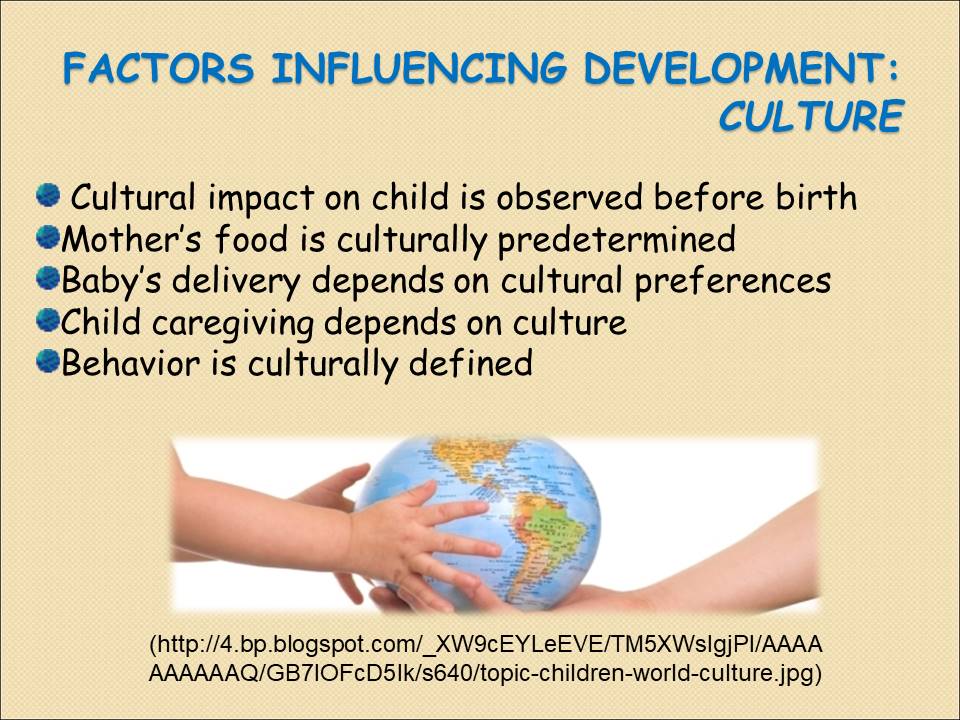
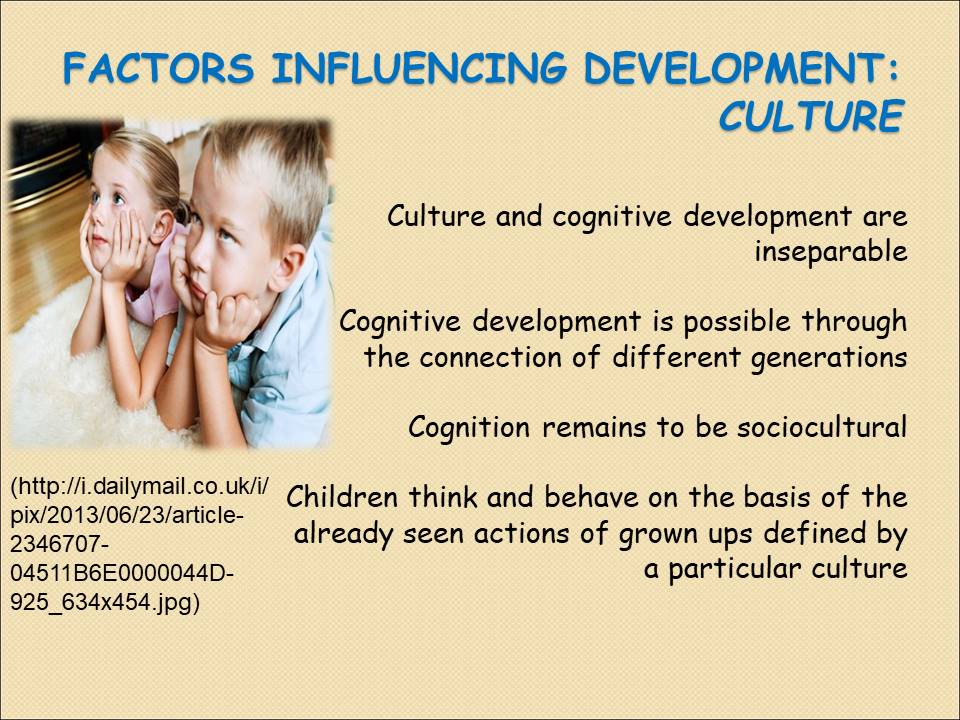
Access
All children have different forms of access to services, which are crucial for life and development:
- Access to high-quality child care;
- Access to nature;
- Access to services.
Early child development is a crucial stage that determines the quality of well-being, behavior, and cognition. It is a period of great opportunities and achievements. It is a time, when children want to get an access to a number of things at the same time. Children do not know the limits and boundaries, they just want to get something and do everything possible to achieve the goal. Success of early child development may be predetermined by the following forms of access: access to high-quality care, access to nature (appropriate environment), and access to services, which are crucial for living. Children may always ask their parents and teachers for help.
Access to High-Quality Child Care
- Children should have a person to ask for care;
- Children should get care even if they do not need it;
- Children should not notice they are taken care of.
Access to Nature
- Experiences in nature;
- Knowledge about nature;
- Pollution and child development.
Access to Services
- Ask questions
- Ask for assistance
- Get healthcare
If children get the required portion of access to high-quality care, development of cognition and behavior occurs according to a certain order. Children are observed by professional teachers because parents want to join the labor market within a short period of time (Hill, Waldfogel, & Brooks-Gunn, 2002). Anyway, children are free to ask for care anytime, and this kind of access influences cognition and behavior positively – children have appropriate examples to be followed and credible sources of information to rely on.
Children should have an access to nature as the level of oxygen influences considerably child’s well-being. When children have an access to nature, they spend less time at home before computers and TV-sets playing video games and watching cartoons (Strife & Downey, 2009).
In general, access available to children influences early cognitive and behavioral development: children are free to ask for help, get answers to all possible questions, and learn the world better from the examples of professional teachers and personal examples of their own parents. It is proved that children, who are deprived of some forms of access to what they want, face certain problems in development as they feel themselves defective or not enough deserving some encouragement.
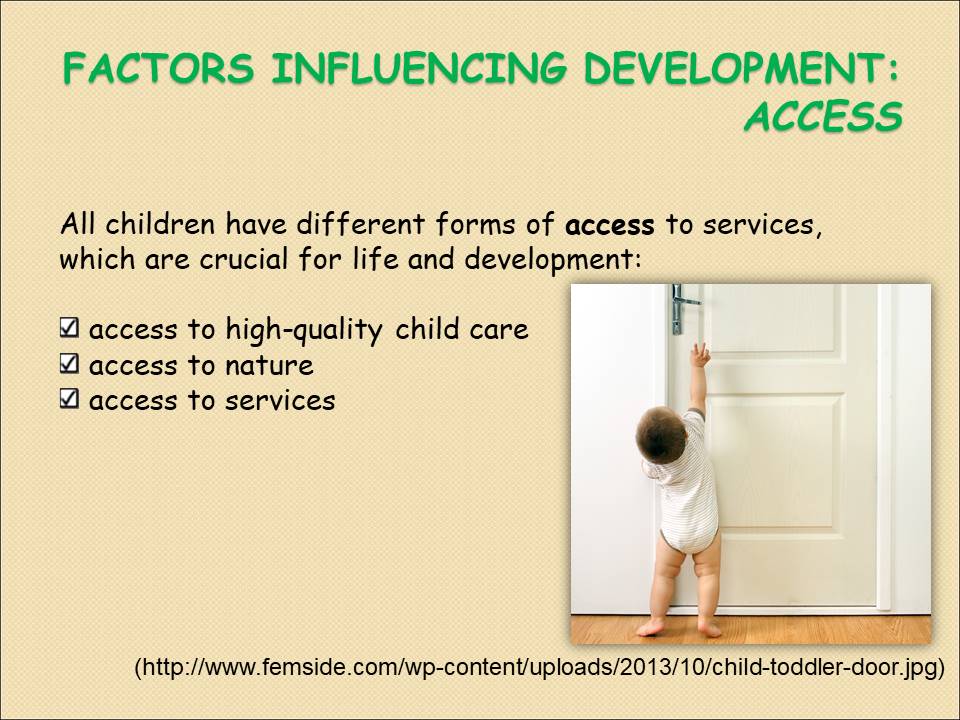
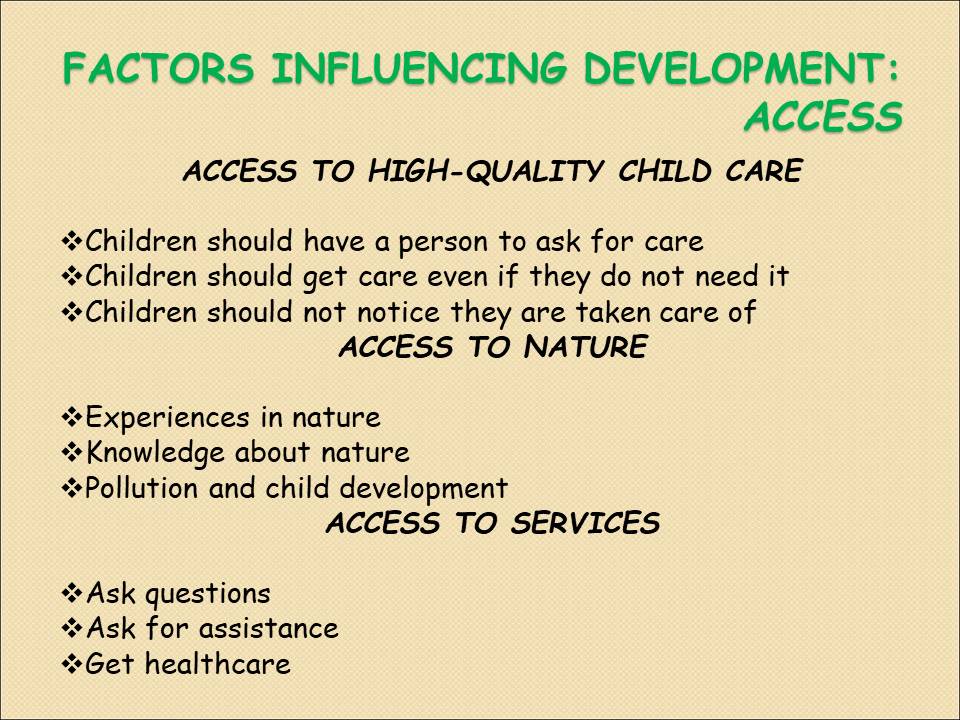
Linguistics
- Linguistics is an important scientific study of human language.
- Language development is similar to cognitive development and promotes the acquisition of the basic forms and meanings by means of which children start communicating.
- Knowledge about language is got from child caregivers.
- Girls develop language faster than boys.
Clark (2004) explains that language influences cognitive development due to its “availability as a representational resource” (p. 476). A child has a word that stands for an object or action, starts thinking about it, and develops its cognition. Language development usually reflects the growth of brain: if children fails to gain linguistic skills before the age of 5, they face considerable challenges acquiring language after the this period. The ability to communicate develops slower than the ability to comprehend language. This is why caregivers have to follow their speech and mind the explanation to promote appropriate child development at an early stage.
Linguistics-Behavior Relation
- The earlier children begin talking, the easier for them to get understanding with the world
- The clearer linguistic explanations from parents/teachers are, the quicker children understand what is expected from them
Linguistics-Cognition Relation
- Children should be promoted to think over what they are saying;
- Parents should encourage children talking and underline their success.
The relation between early child development and linguistics is evident. It is the period, when children make their first attempts to build words, understand their meaning, and use them in accordance with the situation. Parents should understand their roles in developing their children’s linguistic skills. There is no need to focus on theoretical knowledge. It is enough to give explanations, offer examples, and explain the worth of speaking. Children should see that their ability to talk provides them with a number of opportunities: they can ask for help aloud, explain what bothers, and cry out loud to achieve the desirable goal.
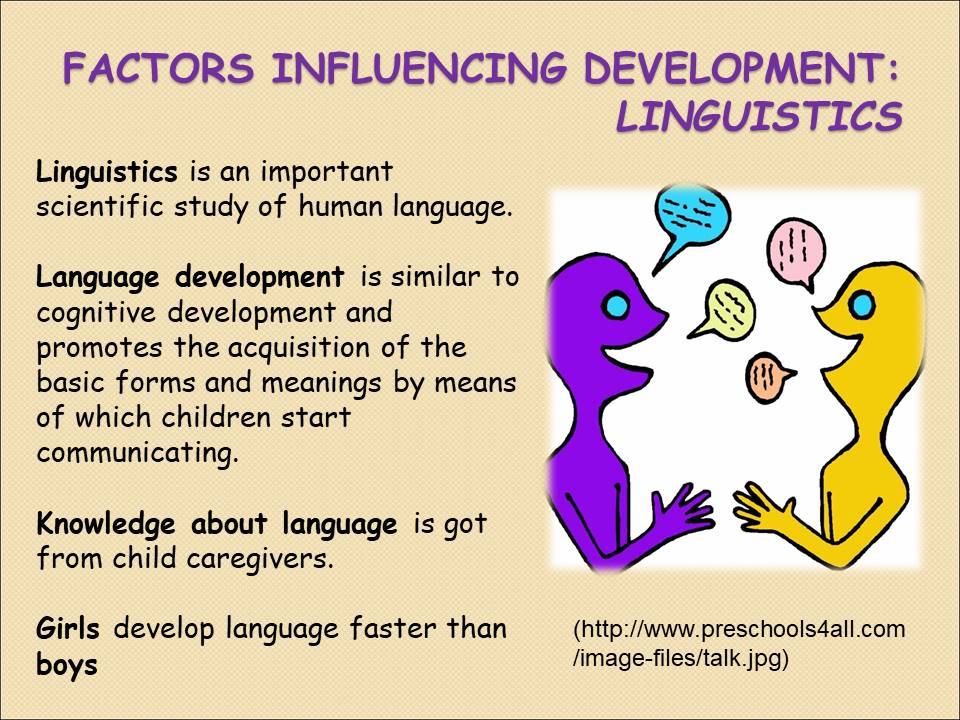
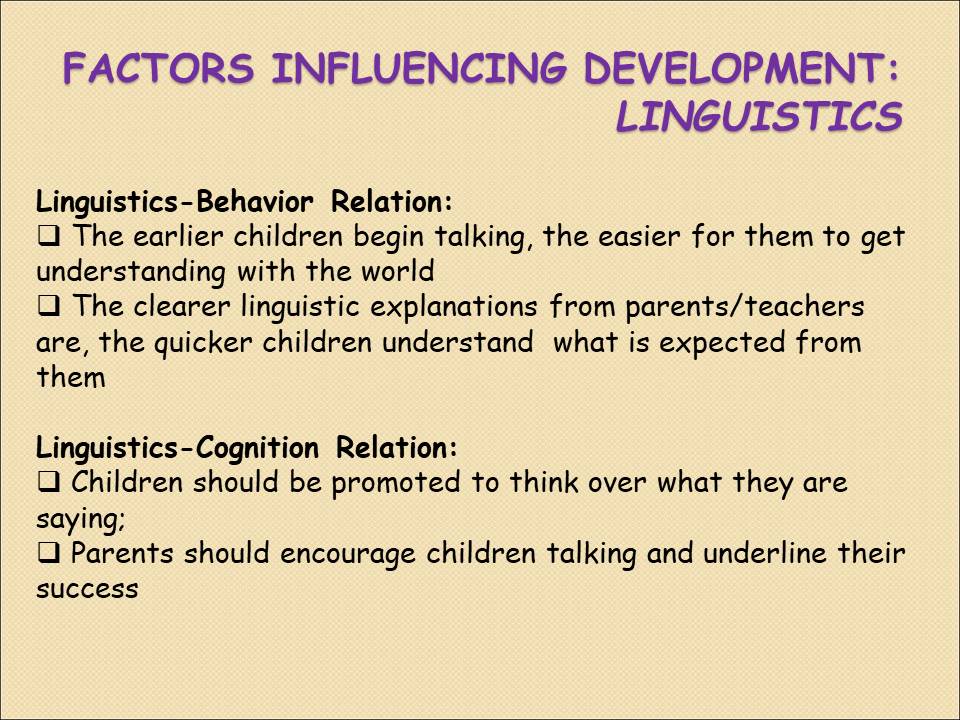
Family
- Early childhood is the period when family relations are appreciated the most
- A child learns about right and wrong, relations, loyalty, worth, dignity, manners, etc. in a family
- Parental involvement in child development is a key factor in approving child cognition and behavior.
Family life is where the major part of a child learning process takes place. Parents have to comprehend how crucial their role in their children’s development process. However, parents should focus on promoting peace and harmony only. Children should learn all aspects of life to get appropriate development of cognition and behavior. It is not enough for parents to answer questions and offer caregiving. Parents should involve children in different activities to make them thinking, evaluating, and analyzing at simple levels, of course. Supportive home environment helps to meet the needs of children and defines the quality of skills that may be developed at the early child development stage (Davis-Kean, 2005).
- Role of fathers in child development
- Position in a family
- Role of different members of a family
- Parents as models for children
Paternal involvement influences positively early child development as children are able to develop their social skills and compare different attitudes to the same situations (Volker, 2014)
It is a well-known fact that first-born children takes all parental attention, still, many parents are young and inexperienced, this is why some successive stages of development remain unknown. Second-born children have to divide parents’ attention from the very beginning, still, they get a good support from the elder children and parents’ experience is richer. Parents are more confident caring second-born children.
Impact of grandparents, siblings, aunts, and uncles is also considerable. Some cultural aspects may be covered, additional support may be obtained, various explanations of the same events are given, and emotional attachment is present.
The way of how behave in a family is used by little children as models for their own actions in other places except home. Children memorize their parents answers, emotions, reactions, and use them unconsciously as the only appropriate ideas.
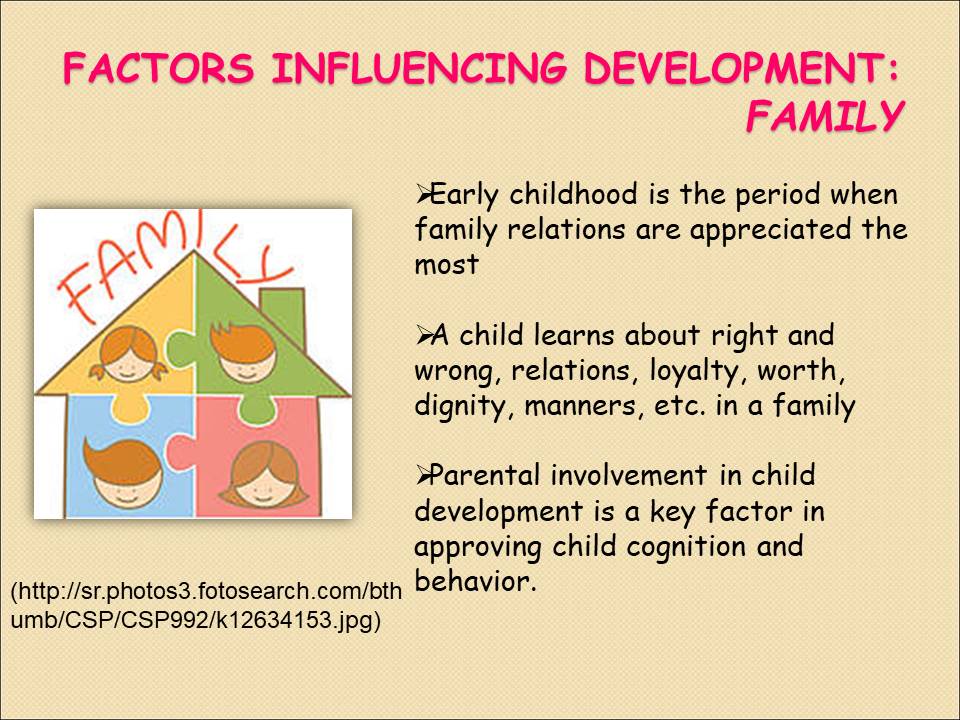
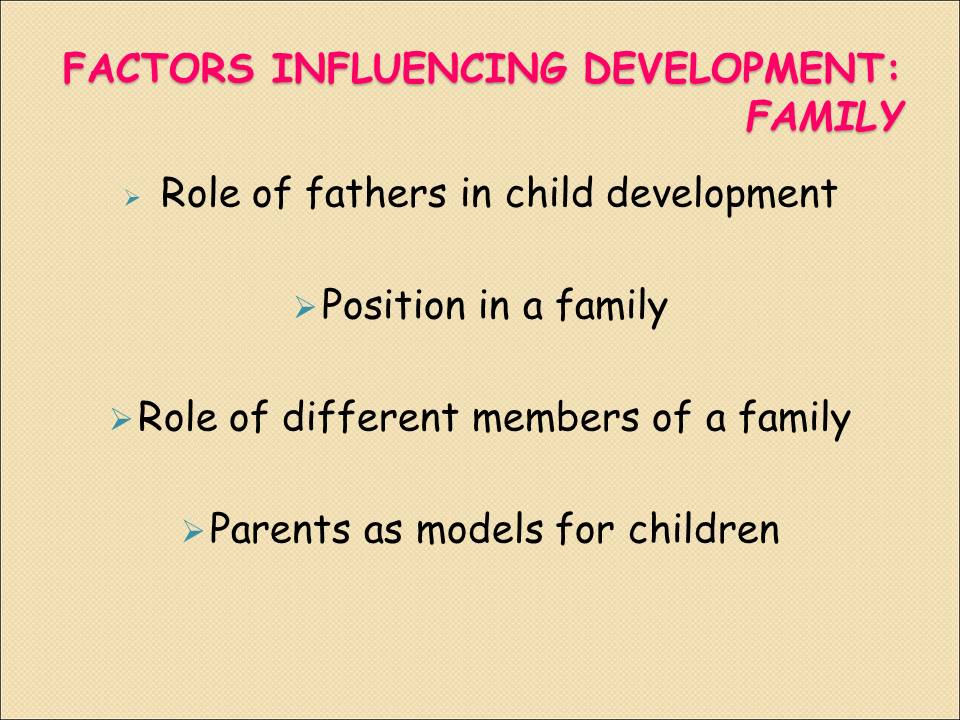
Behavior
- Poverty may lead to unpredictable actions.
- Culture introduces first Dos and Don’ts for children.
- Access defines the level of child intentions.
- Linguistics improves the conditions of child behavior.
- Family becomes an example of how to behave.
Early child development of behavior is predetermined by such factors like poverty, culture, access, linguistics, and family in a variety of ways. Children know nothing about how to behave, this is why they try to take as many outside sources into consideration as possible and learn what may be expected from them. At this stage, children usually rely on their instincts and needs. They do not think about the consequences, they just want to meet a need and do something.
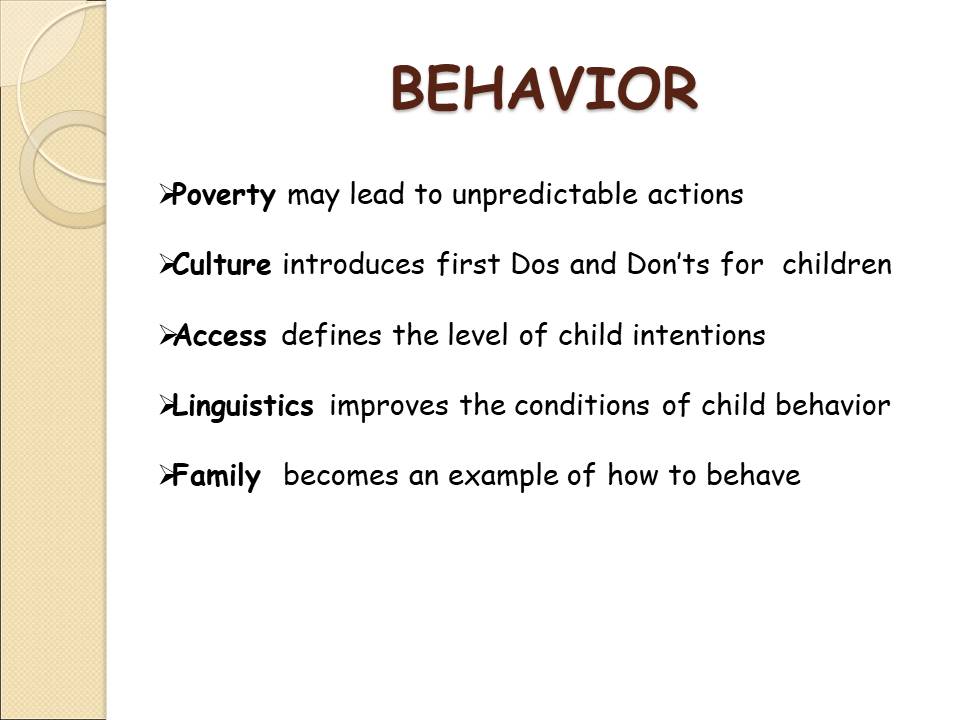
Cognition
- Poverty may impede child cognition.
- Culture shapes the way children think.
- Access improves cognitive functions.
- Linguistics facilitates cognitive development.
- Family defines the quality of child cognition.
The five above-mentioned factors have a certain impact on early child development of cognition. Cognition is the way of how a child thinks, this is why it is not a surprise to observe that poor social status or a unique cultural preference may influence child cognition in a variety of ways. Still, the following fact should be taken into consideration at first – family, and parents in particular, predetermines the quality of cognition. It does not matter how poverty or culture may influence child development, a family defines the norms and teaches how it is necessary to accept the world.
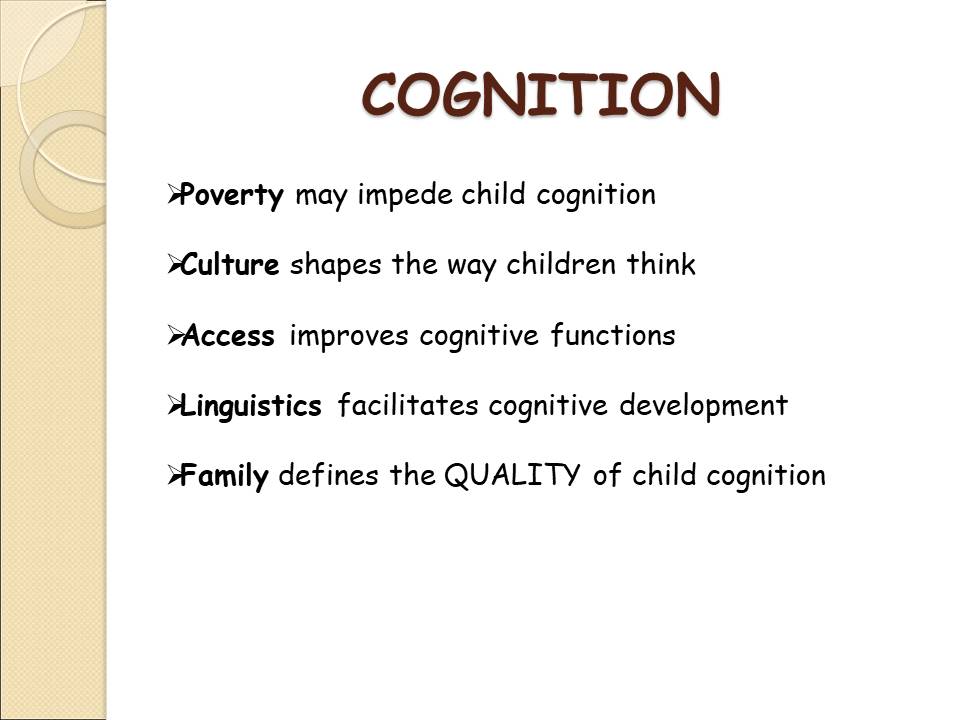
Summary
- Family is the most crucial institution for children!
- Family defines the way of how children accept this world!
- Family is the dictionary of all new worlds and meanings for children!
- Family is the factor that cannot be neglected!
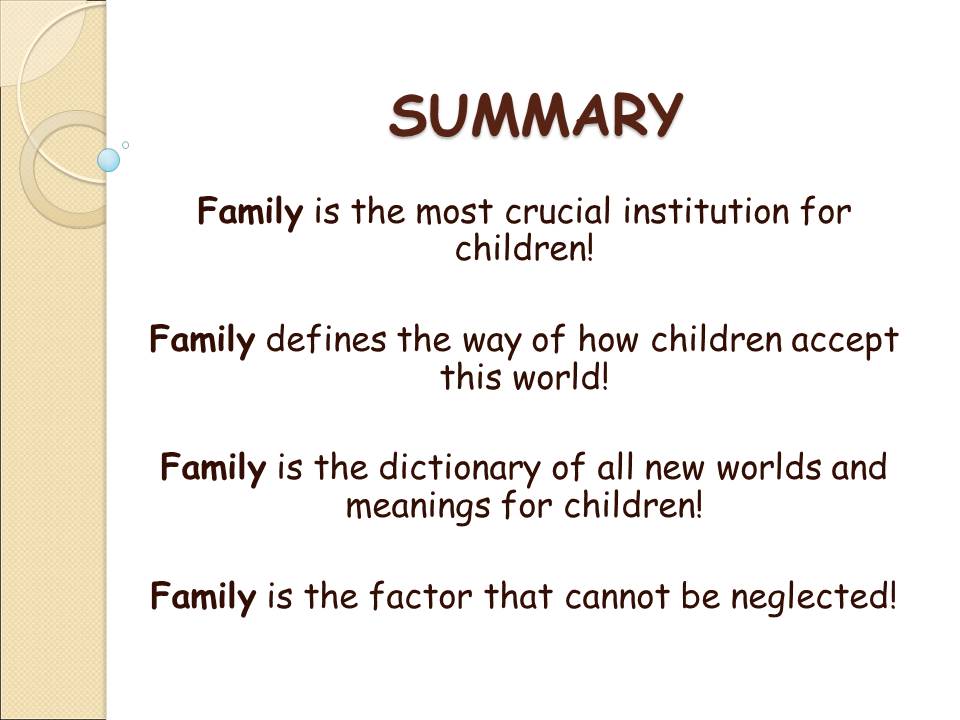
Reference List
Benton, D. (2008). The influence of children’s diet on their cognition and behavior. European Journal of Nutrition, 47(3), 25-37.
Clark, E.V. (2004). How language acquisition builds on cognitive development. TRENDS in Cognitive Sciences, 8(10), 472-478.
Davis-Kean, P. E. (2005). The influence of parent education and family income on child achievement: The indirect role of parental expectations and the home environment. Journal of Family Psychology, 19(2), 294-304.
Engle, P. L. & Black, M.M. (2008). The effect of poverty on child development and educational outcomes. Annals of the New York Academy of Sciences, 1136, 243-256.
Hill, J., Waldfogel, J., & Brooks-Gunn, J. (2002). Differential effects of high-quality child care. Journal of Policy Analysis and Management, 21(4), 601-627.
Maschinot, B. (2008). The changing face of the United States: The influence of culture on early child development. Zero to Three. Web.
Strife, S. & Downey, L. (2009). Childhood development and access to nature: A new direction for environmental inequality research. Organization and Environment, 22, 99-122.
Volker, J. (2014). Paternal involvement: A review of the factors influencing father involvement and outcomes. TCNJ Journal of Student Scholarship, 16. Web.